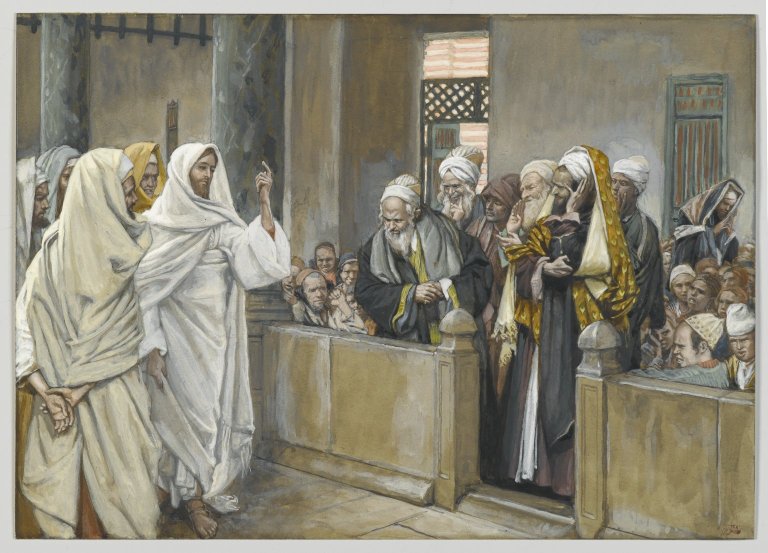In the past month, Pope Francis has condemned capital punishment and nuclear deterrence. Whatever the magisterial significance of his statements, they raise a fundamental question for those promoting the moral theory that subjective judgments of conscience determine our status before God and the Church: “If subjective judgments are final, how can any statement by a pope or bishops, or even Jesus Himself, be normative for Christian behavior?” The search for an answer reveals why the Church has always rejected this theory and why it must be discarded if the Gospel is to flourish.
Cardinal Schönborn, Fr. Spadaro, and others maintain that to determine correct behavior a Christian needs to apply moral ideals to concrete situations. Conscience plays a critical role in this process, so much so that, if someone judges a certain action permissible, he is to be considered innocent of sin regardless of the act or its consequences. Consequently, people cannot be judged based on behavior or moral norms, not even by the Church. It is now being said that the Church’s role is to form conscience, not to replace it.
The proponents of this theory maintain, for example, that someone who has divorced and remarried may engage in sexual relations in that second union in order to foster fidelity and to ensure the well-being of children. Notably, the theory does not require establishing that the first marriage was invalid, but only that the second union entails a serious good that would be put at risk if sexual activity ceased.
The theory asserts that Jesus’ “Gospel ideal” of an indissoluble and faithful marriage is not violated by this sexual relationship because of the complex realities of the second union. Furthermore, it holds that as long as the couple acts according to conscience, there is no subjective guilt and they can continue to receive Holy Communion. Even when a couple is aware in conscience that they are committing adultery, we’re told, they may feel compelled to do so out of fear that legitimate goods could be lost and therefore remain free of mortal sin because they act with mitigated freedom.
Under this theory of morality, imagine a pope was to teach authoritatively that capital punishment and nuclear deterrence are contrary to “Gospel ideals.” But this teaching would then, according to the theory, need to be adapted to the realities of Christian life.
Anyone making decisions about capital punishment and nuclear policy – including voters – must address highly complex situations involving competing goods. For example, how does a legal system ensure the safety of inmates and guards from a sociopathic murderer who continues to kill in prison? Or how does a nation protect its citizens from the disasters that could result from unilateral nuclear disarmament in the face of an enemy determined to develop and use such weapons?

This sort of restrained, conscientious approach would seem to uphold our imagined new ideals by affirming human dignity while responding realistically to complex situations of existential threat. From a moral perspective, the reasoning would be essentially the same as the case of divorced and remarried couples who are said to uphold Jesus’ ideals of marital fidelity and indissolubility while engaging in sexual relations to preserve a second union.
One could, of course, say that those choosing capital punishment and the possession of nuclear arms should abandon those practices and choose to live the new ideals by trusting the Lord rather than yielding to fear. Recall, however, that the theory we are examining explicitly states that fear of losing an important good is a justifiable reason for departing from “Gospel ideals.” Whether people are defending a community or a family, who are we to judge their actions, to determine the legitimacy of their fears, or to replace their consciences?
It becomes clear that if the moral theory promoted by Schönborn, Spadaro, et al. were correct, no statement by Jesus, a pope, or the Magisterium could be considered determinative for Christian behavior. At best, such statements would express evangelical “ideals” that would conscientiously need adaptation to circumstances. Hence, no one acting according to conscience could be disciplined for failing to meet those ideals.
Of course, the theory is wrong, as the Church has repeatedly declared. The Church never taught that following conscience guarantees freedom from sin or suitability for reception of Holy Communion – because conscience may mislead someone due to distortions caused by past sins or by a culpable failure to be formed according to the Gospel proclaimed by the Church. Thus, a person who follows a culpably erroneous conscience in judging himself or his actions innocent may actually be guilty of mortal sin even though he doesn’t recognize that fact.
The theory also ignores the truth that while the Church does not replace conscience, an essential part of her task of forming conscience is correcting and disciplining the faithful. This does not entail a judgement of their subjective culpability, but of the objective reality of their beliefs and actions in light of the life of Christ and the Church. Christ himself established this ecclesial authority for judgment and discipline. (Mt 18:17-18 and 28:18-20)
Only in Jesus, the Incarnate Word of God, can humanity discover and embrace the full meaning of human life and love. Yet the liberating and transforming power of the Word is now radically undermined by a defective moral theory that reduces Gospel realities to abstract “ideals” and misrepresents the Church’s role in forming, correcting, and disciplining Christian consciences. This discredited theory has become a defining obstacle to the Church’s witness to Christ in our times. That obstacle must be removed before it does even worse damage.

















